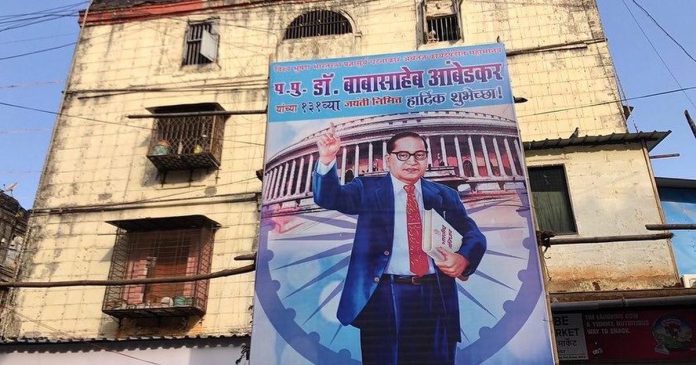Mumbai’s vibrant BDD Chawls, a historic neighbourhood in Lower Parel, has recently become a focal point for a powerful assertion of identity by the Dalit Buddhist community, who are striving to uphold Dr. Babasaheb Ambedkar’s inclusive vision. The phrase “We are Indians, firstly and lastly” resonates throughout the community as a declaration of national unity and a challenge to caste-based divisions, reports the Scroll.
Researcher Jonathan Galton, who spent a year studying the area, observed first-hand the ways in which Dalit Buddhists embrace this ethos. Notably, many residents wear T-shirts emblazoned with Ambedkar’s image and the powerful slogan, an affirmation of their commitment to equality within the Indian society.
One recent dispute underscored the complex inter-caste dynamics within BDD Chawls. When Dalit Buddhists sought to build a tiled path to their Buddha Vihar, or temple, opposition arose from Maratha residents who claimed the area as a kabaddi ground. The dispute reached local authorities, who eventually approved the path, provided both communities shared the space for cultural events. This compromise highlighted the persistent influence of caste boundaries, with Dalit Buddhists often finding themselves in tension with neighbouring communities.
Galton’s account reveals a unique form of “Dalit Buddhist nationalism.” Many Dalit Buddhists here view Ambedkar’s phrase as a call for unity and a rejection of caste hierarchy. This is especially significant given the Dalit community’s historical experiences and ongoing efforts for equality. The slogan is not only a reminder of Ambedkar’s principles but also a call for inclusivity and respect from the broader Indian society.
The community’s form of nationalism is rooted in an understanding of history that frames Dalits as descendants of an ancient Buddhist India, later disrupted by caste divisions introduced by ‘Aryan’ invaders. For them, Buddhism provides a path to India’s future unity. This vision of a national identity challenges majoritarian narratives that often dominate Indian society and emphasizes equality as essential to a harmonious, modern India.
As India grapples with questions of identity and belonging, the message of Mumbai’s Dalit Buddhists offers a compelling reminder of Ambedkar’s vision: an India where every individual is regarded as equal, Indian “firstly and lastly.”




